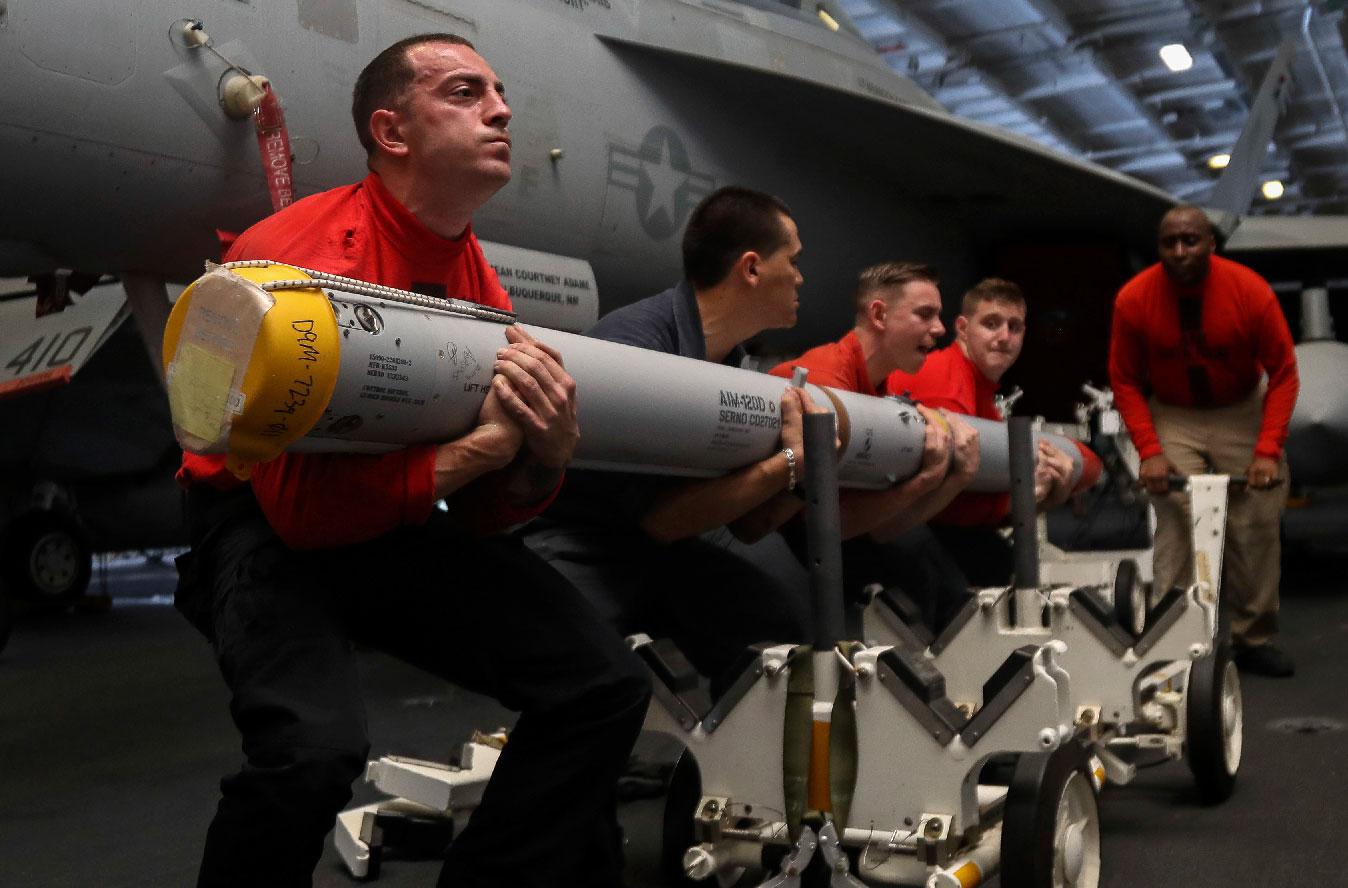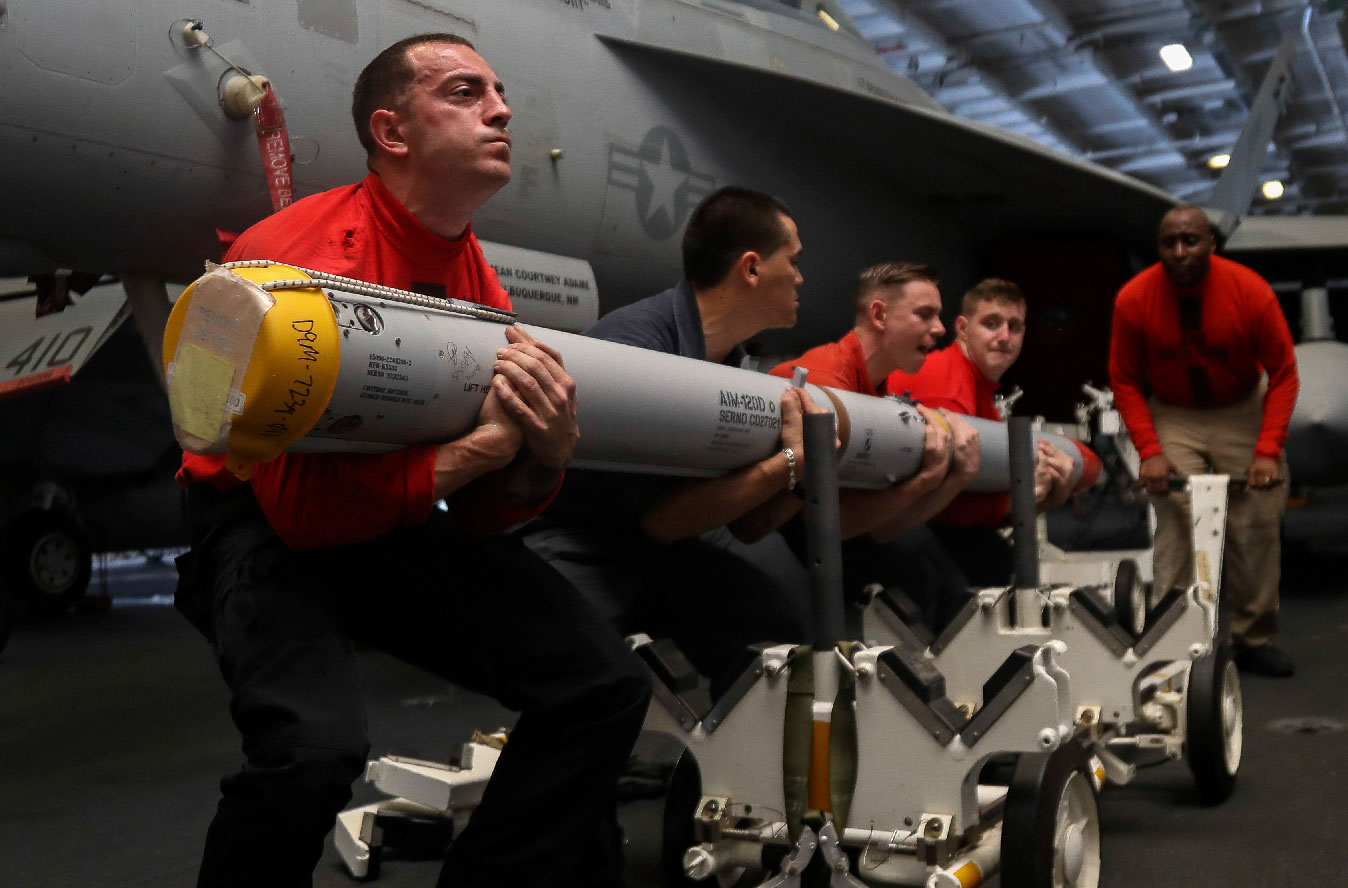US eyes response "short of war" to Gulf tankers attack
DUBAI - US national security agencies believe proxies sympathetic to or working for Iran may have attacked four tankers off the United Arab Emirates rather than Iranian forces themselves, a US official familiar with the latest US assessments said on Tuesday.
The official said possible perpetrators might include Huthi rebels in Yemen and Iran-backed Shia militias based in Iraq but said Washington did not have hard evidence on who sabotaged the four vessels.
On Monday, a US official familiar with US intelligence had said Iran was a leading candidate for having carried out attacks on the four tankers but that the United States did not have conclusive proof Tehran was behind them.
Iran has rejected the allegation and Iranian Foreign Minister Mohammad Javad Zarif said on Tuesday that "extremist individuals" in the US government were pursuing dangerous policies.
The US ambassador to Saudi Arabia said Washington should take what he called "reasonable responses short of war" after it had determined who was behind attacks on oil tankers off the coast of the United Arab Emirates.
"We need to do a thorough investigation to understand what happened, why it happened, and then come up with reasonable responses short of war," Ambassador John Abizaid told reporters in the Saudi capital Riyadh in remarks published on Tuesday.
"It's not in (Iran's) interest, it's not in our interest, it's not in Saudi Arabia's interest to have a conflict."
Four commercial vessels, including two Saudi oil tankers, were sabotaged on Sunday near Fujairah, one of the seven emirates of the UAE and a bunkering hub just outside the Strait of Hormuz. UAE authorities did not say who was behind the attack.
Distancing Tehran from the incident, Iran's Foreign Ministry called it "worrisome and dreadful".
Iran is embroiled in a war of words with the United States over sanctions and the US military presence in the region.
Washington has increased sanctions on Tehran, saying it wants to reduce Iranian oil exports to zero, after quitting the 2015 nuclear pact between Iran and global powers last year.
The US Maritime Administration said last week that Iran could target US commercial ships including oil tankers sailing through Middle East waterways. Tehran has called the US military presence "a target" rather than a threat.
US Secretary of State Mike Pompeo shared information on what he called escalating threats from Iran during meetings with EU counterparts and the head of NATO in Brussels on Monday, the US special representative for Iran Brian Hook said.
Hook declined to say whether he believed Iran played a role in the attacks off Fujairah or if Pompeo blamed Iran. He said the UAE had sought US help in the investigation.
Cool heads must prevail
Newspapers in the UAE ran editorials urging caution in responding to the attack, which risks undermining the Gulf Arab state's image as a regional bastion of stability and security.
"While further details are yet to emerge about this worrying incident, cool heads must prevail, and proper measures should be taken to ensure that this situation does not spin out of control," wrote the editorial board of Abu Dhabi-based The National.
Gulf News, a state-linked Dubai daily, said "rogue actors must be brought to book".
Saudi Arabia's energy minister said on Monday that the attack aimed to undermine security of global crude supplies.
A fifth of global oil consumption passes through the Strait of Hormuz from Middle East crude producers to markets in Asia, Europe, North America and beyond. The narrow waterway separates Iran from the Arabian Peninsula.
Oil prices were up slightly on Tuesday, though checked amid an escalation in the trade war between the US and China.
Gulf Arab stock markets rebounded in early trading. The Saudi index was up 1.4 percent after two days of heavy losses and Dubai stock index was trading 2.4 percent higher after its biggest one-day loss in years on Monday.
US President Donald Trump wants to force Tehran to agree a broader arms control accord and has sent an aircraft carrier and B-52 bombers to the Gulf in a show of force against what US officials have said are threats to US troops in the region.
The top US defense official has also presented an updated military plan to the White House that envisions sending up to 120,000 troops to the Middle East should Iran attack American forces or accelerate work on nuclear weapons, the New York Times reported on Monday.
Citing unnamed administration officials, the Times said Acting Defense Secretary Patrick Shanahan presented the plan at a meeting of Trump's top security aides on Thursday.
The Times said among those attending the Thursday meeting were Trump's national security adviser John Bolton, CIA Director Gina Haspel, Director of National Intelligence Dan Coats, and Chairman of the Joint Chiefs of Staff General Joseph Dunford.
Several plans were detailed, the Times said, and "the uppermost option called for deploying 120,000 troops, which would take weeks or months to complete."
Trump on Tuesday rejected the Times report, but didn't rule out sending "a hell of a lot more" soldiers in the future.
"I think it's fake news, OK? Now, would I do that? Absolutely. But we have not planned for that. Hopefully we're not going to have to plan for that. And if we did that, we'd send a hell of a lot more troops than that," Trump told reporters at the White House.
Iran has said the US is engaging in "psychological warfare" and said it will not allow its oil exports to be halted. Iran's Revolutionary Guards, designated a terrorist organisation by Washington, also threatened last month to close the Hormuz chokepoint if Tehran was barred from using it.



